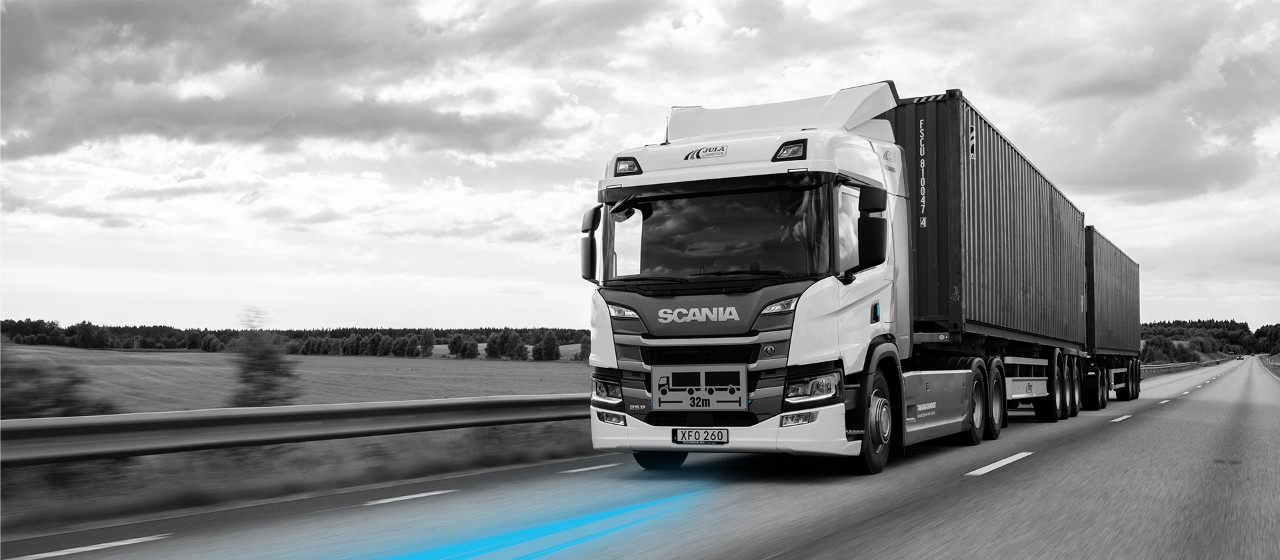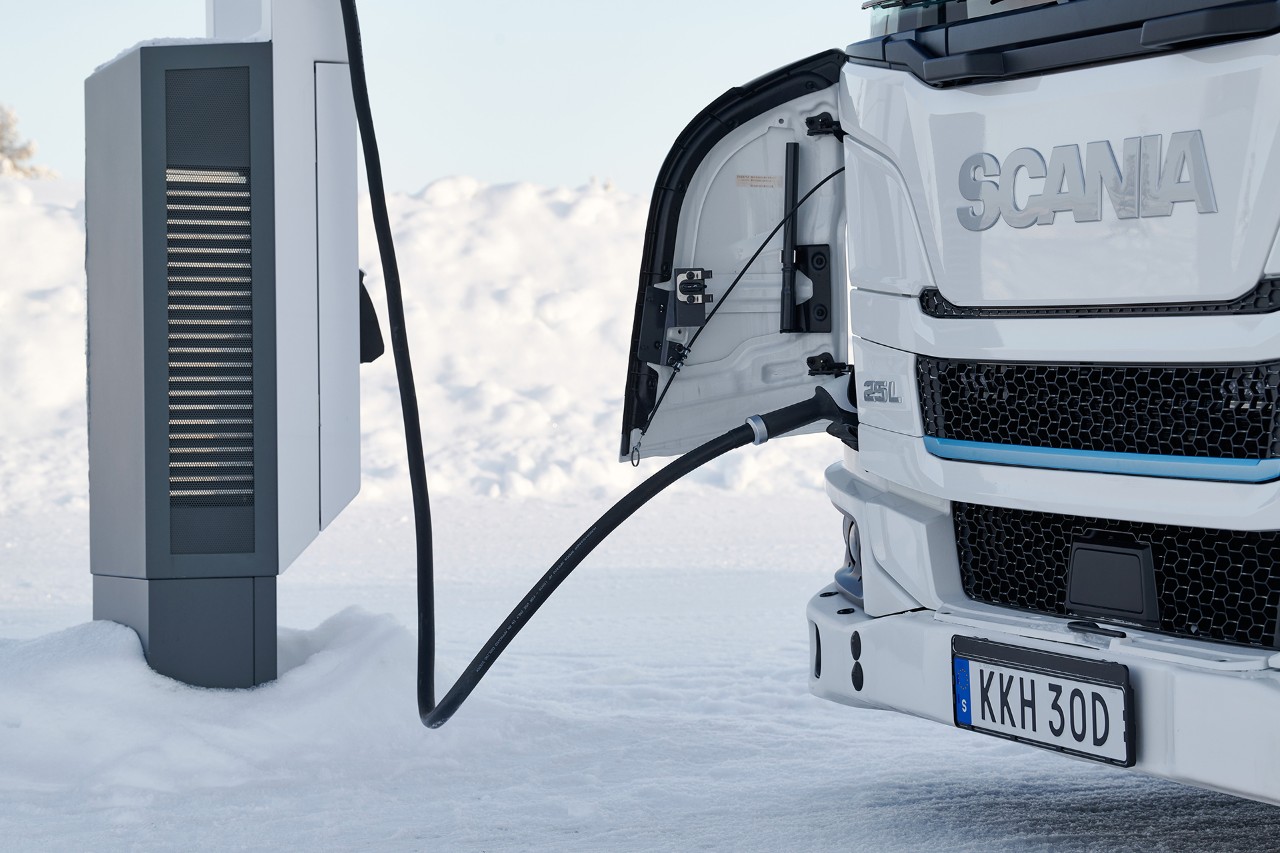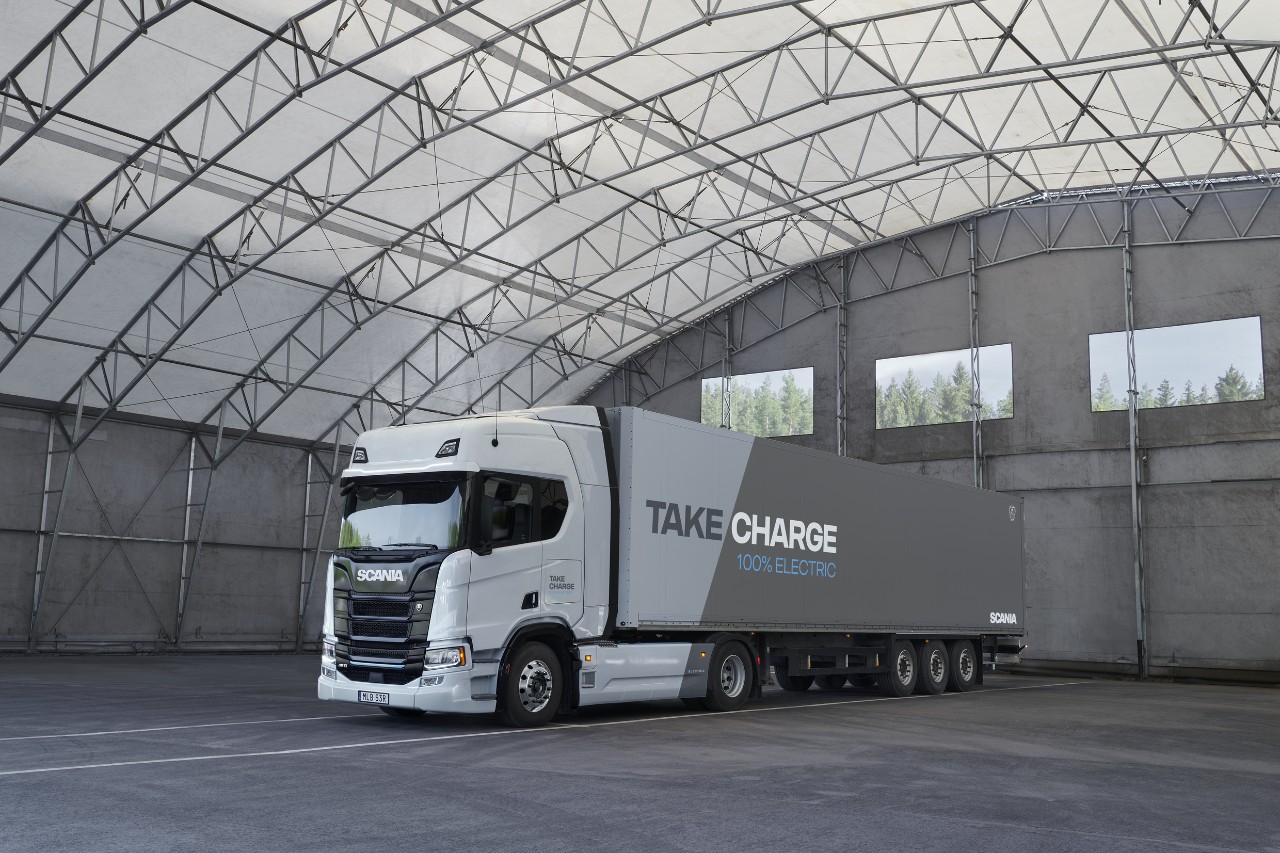
A dynamic partner on Scania’s journey to sustainable transport
Scania’s Pilot Partner programme is advancing our understanding of transport electrification. One of our pilot partners, Jula Logistics, is a ‘lighthouse’ for exciting new ideas and synergies.
At Scania we’ve always said we can’t drive the shift towards a sustainable transport system by ourselves. We need to work in smart partnerships with like-minded actors from across our ecosystem and beyond.
That’s one of the reasons why we established Scania Pilot Partner, to accelerate sustainable transport by testing and learning the early market together with partners. Here Scania can prove to the market what is possible as well as learn about the actual market potential at the same time.
Jula Logistics and Scania
One of our Scania Pilot Partners is Jula Logistics, part of Sweden’s multi-faceted Jula Holding group. Jula Logistics is currently testing two Scania battery-electric vehicle trucks in its road operations, transporting dual 40 foot containers between the combi terminal and the central warehouse. The logistics company shares Scania’s determination to achieve a fossil-free transport system, and even acts as a ‘lighthouse’ for attracting, discussing and introducing new ideas.
“Jula Logistics is one of the most advanced and dynamic partners that we are working with,” says Tony Sandberg, Director for Scania Pilot Partner.
“It’s not only electric trucks. In 2021, Scania and Jula Logistics did a joint trial of high-capacity transport, with a 32-metre-long, 64-tonne truck and trailer combination to transport more cargo per journey and therefore lower emissions. Thanks partly to Jula’s lobbying, it’s now legal to drive 34.5-metre trucks on Swedish roads as of 1st December. It’s a visionary company.”
The driving force behind Jula Logistics’ partnership with Scania is Rickard Bergqvist, research partner to Jula Logistics. Bergqvist is Professor of Logistics and Transport Economics at School of Business, Economics and Law at Gothenburg University. That gives him deep insights into the possibilities of a future transport ecosystem.
“Through Scania Pilot Partner we’ve found an excellent partnership with Scania which we now want to accelerate. This was our point of departure for investigating whether we could scale up that electrification more, so that’s why we’re now testing the two BEV electric trucks,” he says.
Among the aspects Jula Logistics is testing are the potential advantages of using an electric truck for a 32-metre-long vehicle, the energy consumption and range differences in driving heavy containers one way and empty ones on the way back, plus battery charging speeds, warm-up times and even how quickly it takes for the charging to stop after stopping the truck.
“We need to get an understanding of the profile to establish what we’re looking for in an electric truck - the specifications that we need going forward. Just to confirm if there are things we haven’t considered,” Bergqvist explains.
Tony Sandberg adds, “Even though the product might be ready from the factory, there are still a lot of things the customer wants to learn. Logistics set-up, drivers, safety — all of our customers that I see want to learn these things for themselves, by having the first truck together with us. And once they realise that it actually works and how they might need to adapt, then they’re ready to scale up.”
Vehicle electrification: “a technical breakthrough”
The good news is that Jula Logistics is finding that Scania BEV trucks are a truly viable solution for its road transport operations. The pilot started with one BEV truck but quickly added a second as initial results were promising.
“In my whole research career one of the core areas has been sustainability. This the first time I’ve seen a technical breakthrough that can actually mean something. It’s profound. This is large-scale now,” says Bergqvist.
“We’re at a starting point where this is a 100% feasible solution for almost everything, with only a few segments that are tough to electrify. It’s reaching 80 to 85% of the market now, and the speed of innovation is so quick. We’re no longer seeing the classic product cycles of several years. It’s all about continuous improvement, where every six months a new innovation introduced in the product, and that’s absolutely key to success here.”
But Rickard Bergqvist and Jula Logistics aren’t stopping there, as befits a company that’s already invested in solar energy, charging stations and even part ownership of its chosen haulier, EcoLink. Bergqvist’s ideas extend to synergies such as buying transport without energy, where Jula Logistics could potentially take the responsibility for producing a fixed amount of energy to its chosen transport provider, and how the company could help increase energy production for the grid by using its own charging infrastructure and solar energy production.
Partnership for sustainable transport
“It’s inspiring to hear Rickard talk about Jula’s ideas. Of course Scania can and does come up with some ideas by ourselves, but we really need to work with other partners and stakeholders to make changes in this transport ecosystem,” says Tony Sandberg.
“It is possible to make the change we need to achieve sustainable transport. We have the technology to do this but we need to change behaviours and some of the macroeconomics and politics.
“What we can do now is lead by example. And that’s what we’re trying to do at Scania - to show the way, to show this is possible and actually profitable for customers like Jula Logistics and others. That’s the essence of Scania Pilot Partner.”
Read more

Charging
We help you find the right charging solution for your specific need.
